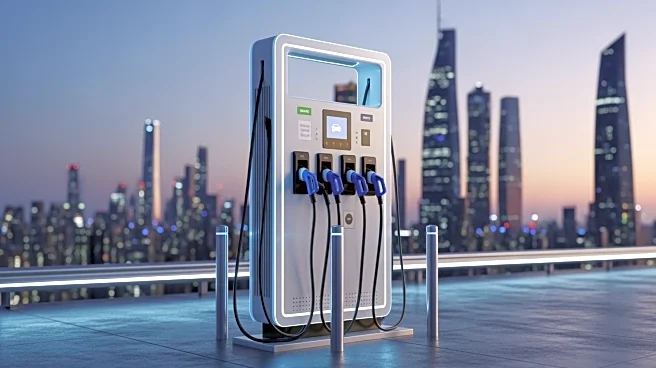What's Happening?
Rivian Automotive is reducing its workforce by approximately 4.5%, affecting over 600 employees, as the electric vehicle (EV) market faces challenges from declining consumer demand, policy changes, and increased
costs. The U.S.-based automaker announced the layoffs as part of efforts to streamline operations and focus on upcoming vehicle launches, particularly the R2 SUV. The expiration of the federal $7,500 EV tax credit in September 2025 is expected to further impact EV sales, adding pressure to Rivian's financial outlook. The company's production costs have risen by 8% due to supply chain disruptions and increased prices for rare earth materials, exacerbated by China's export controls.
Why It's Important?
The layoffs at Rivian highlight the broader challenges facing the EV industry, including dependency on government incentives and global supply chains. The expiration of the federal tax credit is likely to slow consumer adoption of EVs, particularly affecting mid-range models like Rivian's R2 SUV. The rising costs of production, driven by geopolitical factors such as China's control over rare earth materials, underscore the vulnerabilities in the EV supply chain. This situation could lead to increased financial strain on EV manufacturers and potentially slow the transition to electric vehicles in the U.S.
What's Next?
Rivian is focusing on cost-cutting measures and preparing for the launch of the R2 SUV, which is expected to compete with mass-market EVs from other major automakers. The company plans a temporary production halt to install new components for the R2 rollout. As the EV market adjusts to the loss of tax incentives, manufacturers may need to explore alternative strategies to maintain sales and profitability. The industry will likely see increased efforts to optimize supply chains and reduce dependency on volatile international markets.









